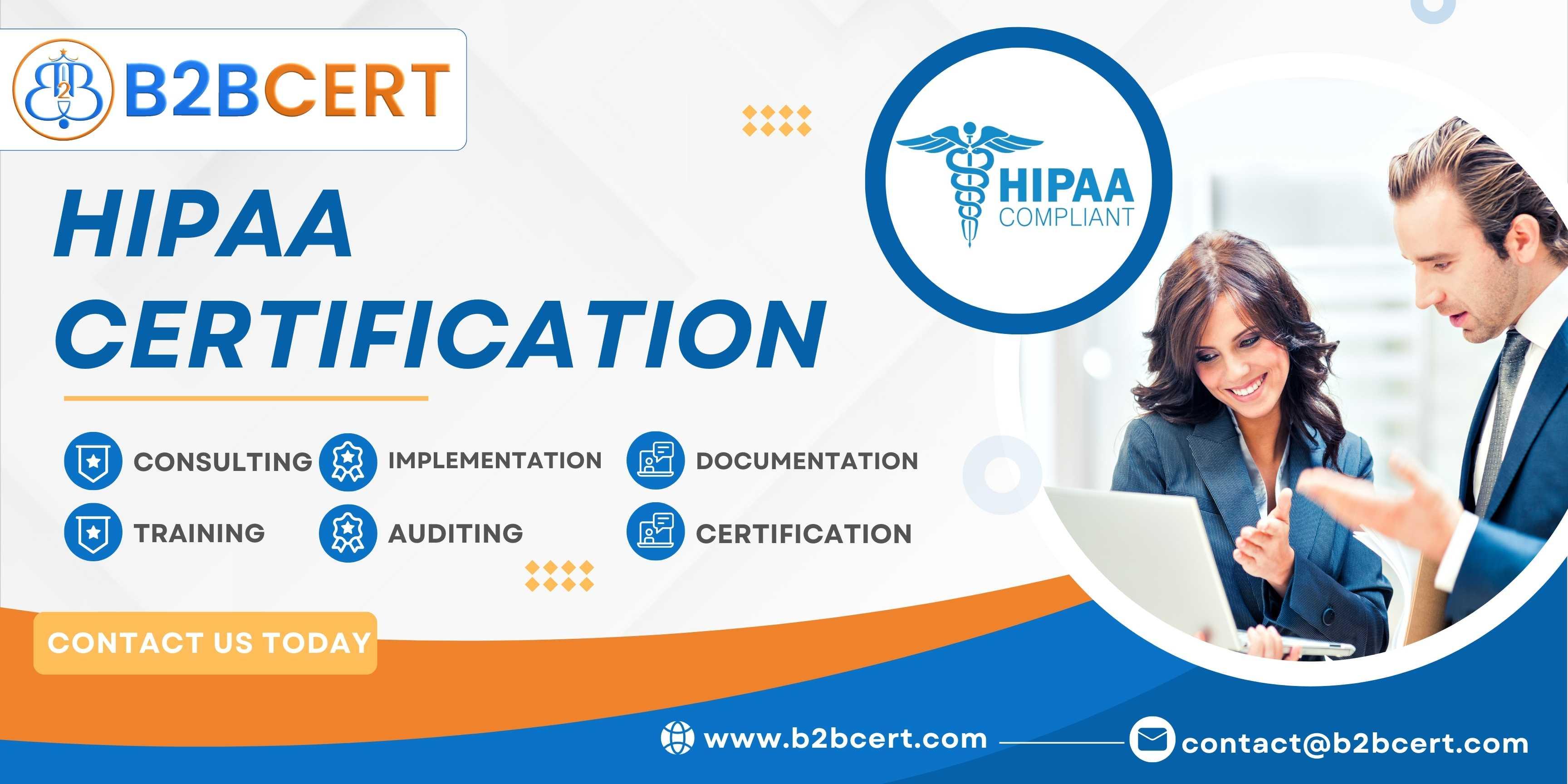The Role of HIPAA Audits in Ensuring Data Security

As Vietnam's healthcare sector continues to expand and integrate with global standards, the importance of maintaining privacy and security for healthcare data has become a key focus. The Health Insurance Portability and Accountability Act (HIPAA) certification, a U.S. regulation, plays a pivotal role in setting global benchmarks for healthcare data security. Although HIPAA primarily applies to U.S.-based entities, its principles are increasingly being adopted internationally, including in Vietnam. This blog post explores the implementation of HIPAA Certification in Vietnam, the HIPAA audit process, and the role of HIPAA consultants in ensuring compliance.
HIPAA Implementation in Vietnam
In Vietnam, the adoption of HIPAA certification is becoming more relevant as local healthcare organizations and service providers partner with international entities. With the rapid digitization of healthcare services and an increasing amount of health data being shared globally, the need for robust data protection measures has never been greater.
HIPAA, established in 1996 by the U.S. government, focuses on securing sensitive patient health information (PHI) and ensuring that healthcare organizations handle it responsibly. While Vietnam does not have an exact equivalent of HIPAA, the growing integration with international healthcare systems has prompted local organizations to implement HIPAA-compliant practices, especially those dealing with U.S.-based patients or companies.
Key Elements of HIPAA Implementation in Vietnam
Risk Assessment and Privacy Policies
The first step for Vietnamese healthcare organizations seeking HIPAA certification is conducting a thorough risk assessment. This assessment helps identify vulnerabilities in the handling of electronic health records (EHR) and personal health information (PHI). Following this, healthcare entities must implement comprehensive privacy policies that ensure patient data is stored, processed, and transmitted securely.
Employee Training and Awareness
HIPAA Services in Vietnam requires healthcare organizations to train staff on data protection practices. In Vietnam, this translates to educating employees on the importance of confidentiality and security in handling PHI. Regular training sessions and awareness programs are essential for maintaining a culture of privacy within healthcare organizations.
Implementation of Safeguards
Healthcare providers in Vietnam must implement both physical and technical safeguards to protect PHI. This includes encryption of data, secure access controls, audit trails for data access, and physical barriers that protect sensitive patient information from unauthorized access.
HIPAA Audit in Vietnam
A HIPAA audit is an essential step for verifying that healthcare organizations comply with the stringent requirements set by the U.S. regulation. The audit process evaluates an organization’s policies, procedures, and practices to ensure that they meet HIPAA standards for privacy and security of health information.
Steps Involved in the HIPAA Audit Process
Pre-Audit Self-Assessment
Before undergoing an official HIPAA audit, organizations often conduct a self-assessment to ensure they are compliant with HIPAA’s requirements. This self-assessment typically includes reviewing privacy policies, security measures, employee training programs, and risk management processes.
On-Site Audit
During the on-site audit, certified auditors will examine the organization's healthcare facilities, review its security measures, and assess how PHI is handled. This could involve evaluating the physical security of storage areas, as well as testing electronic safeguards like encryption and access control mechanisms.
Audit Findings and Recommendations
Following the audit, the auditors provide a report detailing their findings. This includes any gaps or deficiencies in the organization’s compliance with HIPAA Services in Zambia standards. The organization is then given a timeline to address these issues and implement corrective actions.
Post-Audit Compliance Verification
After corrective actions are taken, a follow-up audit may be required to verify that the organization has addressed all compliance issues. Continuous monitoring and regular audits ensure that the organization remains HIPAA-compliant over time.
HIPAA Consultants in Vietnam
For organizations in Vietnam seeking HIPAA certification, working with specialized HIPAA consultants can streamline the process and ensure that all regulatory requirements are met. HIPAA consultants are experts who guide healthcare organizations through the complexities of implementing HIPAA standards.
Services Provided by HIPAA Consultants
Gap Analysis and Risk Assessment
HIPAA consultants begin by conducting a comprehensive gap analysis to identify any areas where the organization’s existing practices fall short of HIPAA requirements. This is followed by a detailed risk assessment to evaluate potential threats to patient data and determine the best strategies to mitigate those risks.
Policy Development and Documentation
One of the most critical roles of HIPAA consultants is to assist healthcare organizations in developing the necessary policies and documentation. This includes creating data security policies, privacy notices, employee training materials, and incident response plans.
Implementation of Safeguards
Consultants work with organizations to implement physical, administrative, and technical safeguards required for HIPAA compliance. This includes recommending and configuring encryption tools, access control systems, and backup solutions to ensure the confidentiality and integrity of PHI.
Ongoing Support and Training
Consultants also provide ongoing support, including staff training and continuous monitoring to ensure compliance is maintained. They help with periodic audits, updates to policies, and ensuring that the organization adapts to any changes in HIPAA regulations.
Conclusion
HIPAA Registration in Uganda is becoming increasingly important as the healthcare industry modernizes and adopts international standards for data security. The implementation of HIPAA in Vietnam involves a multi-step process, including risk assessments, employee training, and the application of both physical and technical safeguards. The HIPAA audit ensures that organizations comply with these standards, while HIPAA consultants provide vital expertise in guiding businesses through the complex certification process.
By achieving HIPAA certification, healthcare organizations in Vietnam can demonstrate their commitment to data privacy, safeguard patient information, and build trust with both local and international partners. With the support of consultants and regular audits, organizations can maintain compliance and stay ahead in a competitive global market.
- Art
- Causes
- Crafts
- Dance
- Drinks
- Film
- Fitness
- Food
- Games
- Gardening
- Health
- Home
- Literature
- Music
- Networking
- Other
- Party
- Religion
- Shopping
- Sports
- Theater
- Wellness


